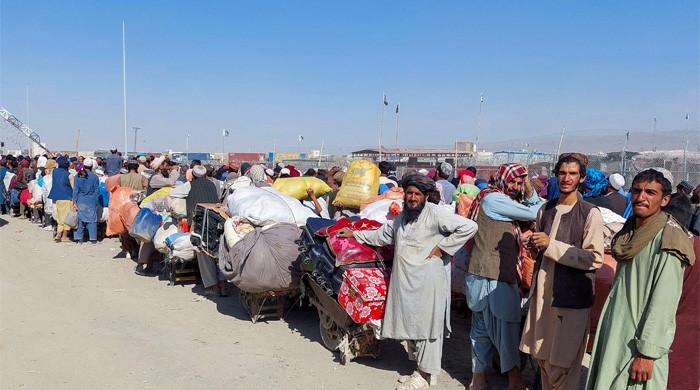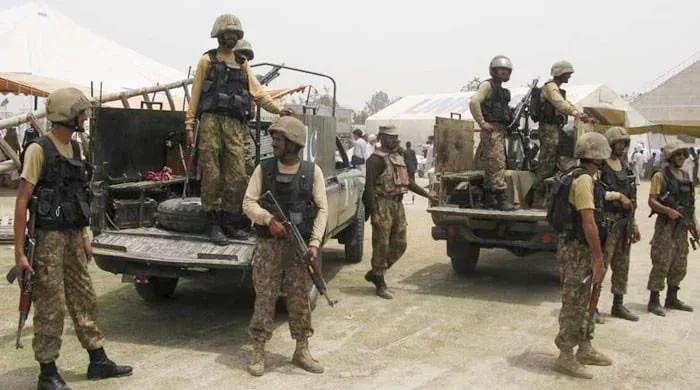Sixth Census 2017: Why leaders are fearful
The Federal Government and provinces are neither serious about nor taking an interest in holding population and housing census in the country
February 24, 2017

KARACHI: The Federal Government and provinces are neither serious about nor taking an interest in holding population and housing census in the country.
It’s a legal obligation imposed on the Federal Government in the Federal Legislative list of fourth schedule to the Constitution; nevertheless, hurdles are being created to delay or stop the sixth census in Pakistan, as mentioned in Aam log Ittehad Petition filed in the Supreme Court of Pakistan.
According to Petitioner Justice (retd) Wajihuddin Ahmed, Acting Chairman Aam Loeg Ittehad: “While the first four censuses were more or less regularly and duly held in the years 1951, 1961, 1972 and 1981, the fifth census was undertaken in 1998 after 17 years, an inordinate delay of 7 years which was certainly avoidable. That is not to say that the pervious censuses were problem free. However, we are now in the 21st century and living in the Information Age, with little or no scope for such aberrations.”
Justice Wajihuddin Ahmed said in a separate statement: “None of the governments are serious in the matter, though for different reasons. The Federal Government is engaged in a mechanical exercise, solely because it has to honor its undertaking before the apex court. The sardars and Khans of Balochistan and KP feel threatened that once their impecunious and burgeoning populations are quantified, their own lavish and luxurious lifestyles would come under scrutiny. The Sindh government, which exclusively represents rural Sindh, is determined to inflate the numbers in rural areas and decimate those in urban Sindh.”
Justice Wajih further said that the census is an activity necessary to assess the needs on the basis of population, and this act will be beneficial for human rights.
The petition points out that the leadership of Punjab is no wiser. It is fully aware that the proportion of their population is slowly declining and if census is held it would no longer be officially reflected as being 55.63% of the population of Pakistan. The estimated Punjab population, as per the 2011 Housing Census, is 47.69%. In the previous census of 1998, while a slower per annum growth rate of 2.64% in Punjab was recorded, Sindh registered a growth rate of 2.80% per annum.
The petition further states that if this trend continues, it is bound to have a negative impact on the 148 National Assembly seats allocated to the province of Punjab under the Constitution. In order to maintain and ensure the numerical majority of the province of Punjab in the population census of Pakistan, some functionaries of the Punjab government are keen to have the exercise of the forthcoming census abandoned.
The notables of Punjab need to realise that if the present population ratio of their province is unrealistically maintained and reflected to be higher than it actually is, history may repeat itself. In similar circumstances, the former province of East Pakistan, having a 54% share of the total population, seceded, not the least for the reason that the former province of West Pakistan was not in favour of the idea of remaining a permanent minority province, says the petition.
The petition notes that the situation is particularly sensitive in Sindh because at this eleventh hour the government is proactively pursuing the issuance of CNICs in rural areas. It is no secret that the government of Sindh only and exclusively represents rural Sindh, with a predictable tilt in that direction. Its unchecked participation in the census exercise, which, as stated in the preceding paragraph, is a Federal subject/entry, occurring in Part II of the Federal Legislative List, controlled by Articles 153(4) and 154 (1) (6) ), is likely to produce unacceptable results.
Aam Loeg Ittehad petition states that there is hue and cry in Balochistan that if the current census, in the present situation, is carried out the Baloch people shall be relegated to being a minority in their own province. Nothing can be farther from the truth. The Baloch people, who are purported to have moved to Sindh and Punjab, can easily be counted at their present places of residence. And if some Afghan refugees, in Balochistan, now possess Pakistan CNICs, they can always be carefully screened and excluded from the head count of the forthcoming population census. Thereafter, their illegal Pakistan CNICs can be replaced by other distinctive cards of identification.
Much the same is the position in KP, where provincial leaders have shown apprehension that if some migrants from Afghanistan, who are unlawfully holding Pakistan CNICs, are counted, as part of the population, the Pashtuns would be converted into a minority. That also is as illogical a position as taken by the Baloch sardars. For one thing, an inflated KP population would bring similar benefits, as in the case of Balochistan and in any case the electoral process would remain unaffected, as in the case of Balochistan, states the petition.
It has been requested of the Honorable Court to direct the Federal Government to assume full jurisdiction in the matter of the forthcoming census and provide directions and guidance to the Council of Common Interests, as and when necessary. The Court has also been appealed to direct the Federal and Provincial Governments of Pakistan to ensure full, complete and absolute compliance of law and the Constitution in the matter of the forthcoming census.
Census is not just for the head-count of Pakistani citizens (CNIC holders) but of all persons in Pakistan who must be counted on the basis of due and verifiable particulars and only after securing due clarification of valid CNIC holders.
The petition has further requested the Court to issue directions to NADRA, through the Chair NADRA to cancel all illegal CNICs and, where needed, to issue other cards/insignias for identification of persons holding illegal CNICs. And also to prohibit NADRA from issuing new CNICs at least one month prior to the start of the first phase of the census.
It has also been requested that the Court prohibit all Provincial Governments from any and all direct or indirect interaction with the census functionaries, and to ensure that no census result is announced until the Armed Forces’ component of the census personnel expressly approves it.











